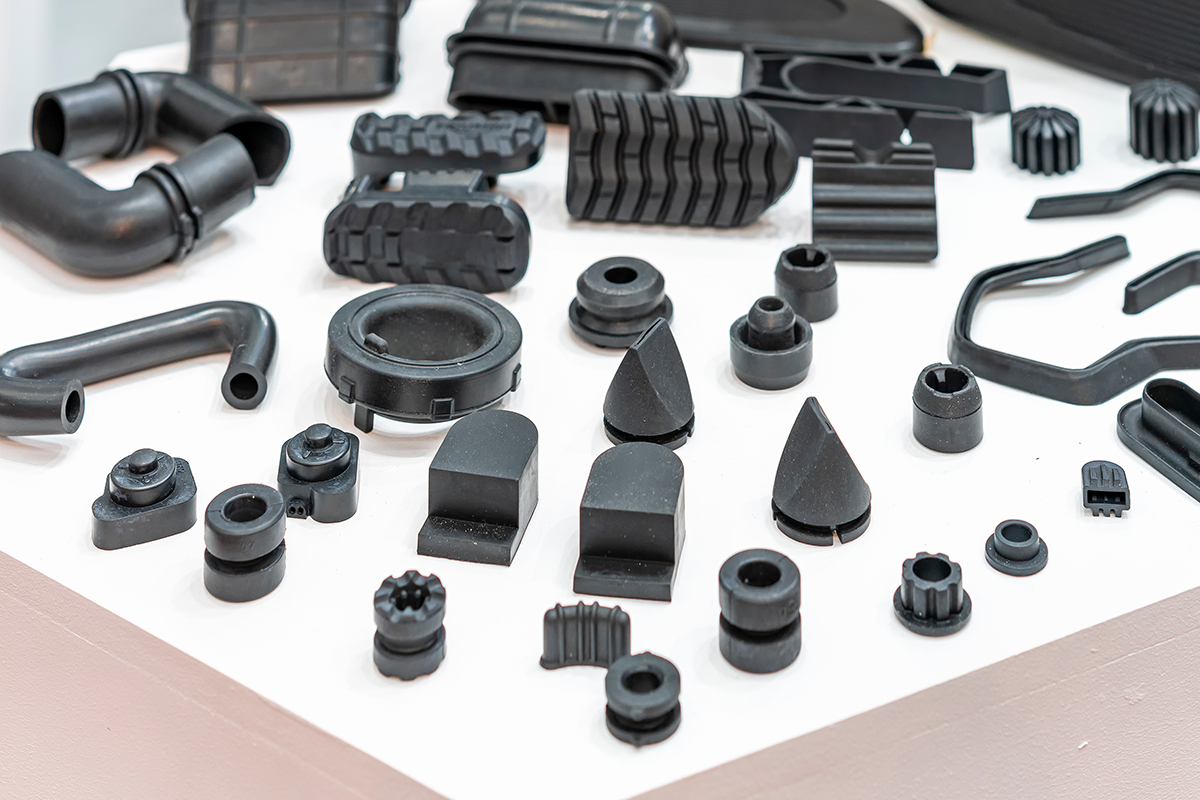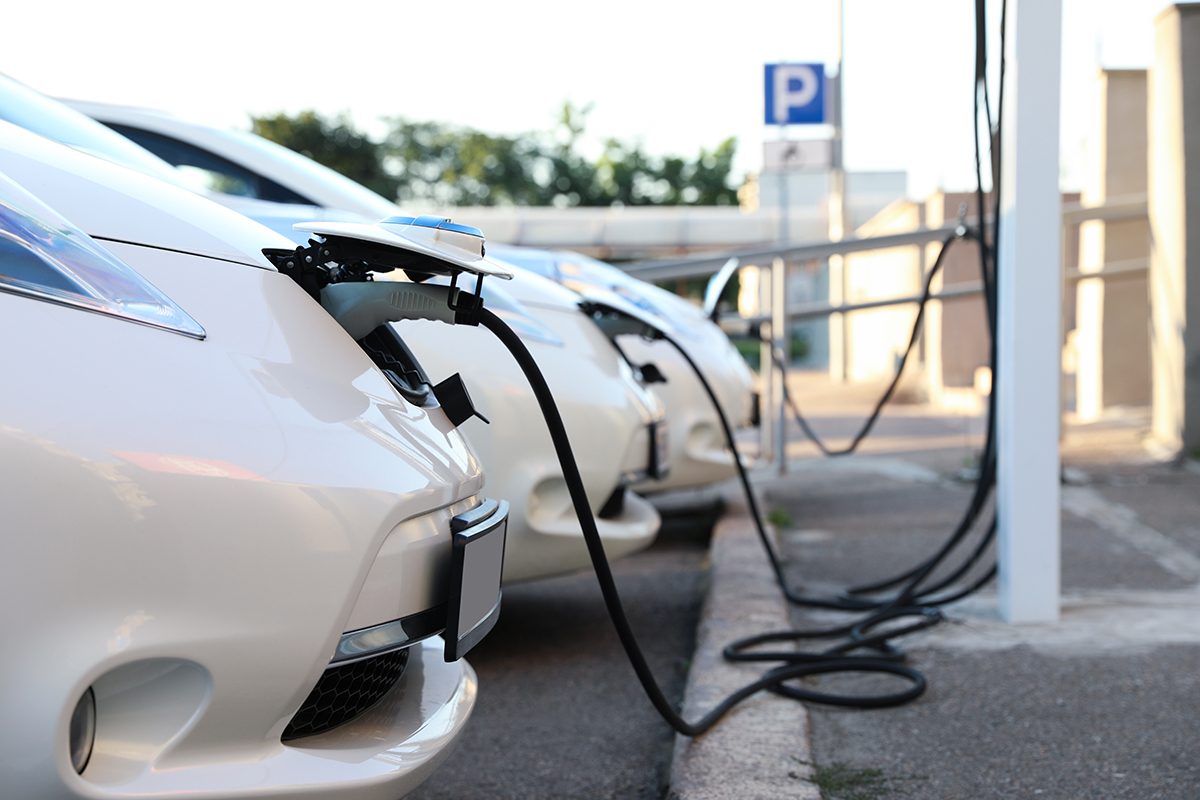How the Automotive Industry Drives Innovation with the Use of Rubber Compression Molding

However, despite the many advantages of this process, like high temperature and high-pressure tolerance, and the ability to mold raw rubber material into a desired shape, it is not without its challenges. Rubber compounds, known for their versatility, can vary significantly in chemical makeup. This diversity can lead to abrasive or aggressive compounds that cause damage to the mold surfaces, resulting in a drastically shortened tool life.
At Stoner Molding Solutions, we specialize in providing cost-effective solutions for these challenges. Our products include water- and solvent-based release agents suitable for natural and synthetic rubber molding. Whether you're dealing with compression molds, injection molding machines, or transfer molding, our solutions can offer semi-permanent or sacrificial coatings to protect your molds and extend their life.
Don't let the complexities of rubber compression molding hinder your automotive manufacturing process. Talk to our experts today. Let us help you optimize your rubber compression molding process, delivering high-quality, custom rubber products to keep you at the forefront of the automotive industry.
What Is Rubber Compression Molding?
Rubber compression molding is a reliable method used in manufacturing various rubber products. It involves placing a pre-formed piece of raw rubber material into a heated mold cavity. Under high pressure, the material spreads to fill the mold cavity, taking on the desired shape. Once cured, the new shape is retained, creating custom-molded rubber parts.
This molding method is particularly effective for creating intricate designs and using materials that are difficult to shape. From O-rings to complex custom rubber parts, compression molding allows for a wide range of shapes and sizes. It's a process utilized across a wide range of industries, not least of which is the automotive industry.
How Does the Automotive Industry Use Rubber Molded Parts?
The automotive industry heavily relies on rubber-molded parts, with rubber compression molding playing a significant role. From tires to gaskets, seals, and hoses, these parts are essential for the functionality and safety of vehicles. For example, custom-molded rubber products like gaskets and seals ensure that fluids and gases don't leak, maintaining the vehicle's performance and safety.
Moreover, these rubber parts can withstand high temperatures and pressures due to their mechanical properties, making them ideal for automotive applications. Whether it's under the hood or within the vehicle's interior, rubber molded parts contribute significantly to the overall performance and durability of automobiles.
The Advantages of Compression Molding
Compression molding offers numerous advantages, making it an attractive option for many manufacturers. Firstly, it's cost-effective, especially for low-volume production or prototyping. The molds are less expensive to produce and maintain, resulting in lower overall costs.
Secondly, compression molding allows for creating large, fairly intricate parts. This flexibility is especially beneficial in the automotive industry, where custom rubber parts are often required. Lastly, it's a process that works well with various rubber materials, including silicone rubber, synthetic rubber, and natural rubber, offering manufacturers great versatility.

Is the Rise of Electric Vehicles Affecting Rubber Molding?
The rise of electric vehicles (EVs) has changed the rubber molding industry. While EVs still require many of the same rubber molded parts as traditional vehicles, such as seals and gaskets, the demand for other parts may decrease. For instance, internal combustion engines have more rubber components than electric motors.
However, this doesn't mean the need for rubber molding is diminishing. On the contrary, new opportunities are emerging. EVs require new types of seals and insulation, creating a demand for innovative rubber products. Thus, while the rise of EVs is reshaping the landscape, it also presents new opportunities for those in the rubber molding industry.
What Can Those in the Automotive Rubber Molding Industry Do to Optimize Their Process?
Optimizing the rubber compression molding process requires a comprehensive understanding of the many factors involved. Every detail matters, from selecting the appropriate rubber compounds and designing the mold to controlling the pressure and temperature during the process.
One key area to focus on is mold design. Ensuring optimal mold cavities and selecting the right materials for mold plates can significantly improve the quality of the final product. Using abrasion-resistant and corrosion-resistant materials can also prolong tool life.
Use the Right Rubber Molding Products
Another key area is choosing the products you use to easily release your products from the mold and maintenance. From mold releases to lubricants, we have the products you need to make your molding process more efficient.
- Mold Releases: Applying a semi-permanent or sacrificial coating can also protect mold surfaces from abrasive or aggressive compounds, extending their lifespan. It also helps to quickly remove molded parts after vulcanization to prevent surface imperfections.
- Mold Cleaners: Use our versatile and effective mold cleaners to remove build-up that leads to part discoloration and poor mold performance. These products ensure the mold cavity is free from grease, oils, polymers, and other contaminants before use for high-volume production of custom rubber products.
- Rust Preventative: Unprotected tools can lead to rust, oxidation, and corrosion over time, no matter how long or short of time you store it. Use rust preventatives from Stoner Molding Solutions to protect your rubber tooling, especially if your company uses transfer, compression, or injection molding processes.
- Lubricants: Using one of our mold release lubricants can prevent natural rubber parts from sticking to the mold, making your custom molded rubber process more efficient. In addition, the flexible rubber molding process is simplified when using suitable penetrating lubricant on metal compression molds.
Stoner Molding Solutions offers a range of cost-effective solutions to help optimize your rubber compression molding process. Working with our experts can enhance your process, increase efficiency, and produce high-quality rubber molded parts.
Need Help with Your Rubber Compression Molding?
Navigating the complexities of rubber compression molding can seem daunting, particularly with the ever-evolving demands of the automotive industry. From understanding the intricacies of different rubber materials to optimizing mold design and dealing with the pressures and temperatures associated with the process, many factors must be considered.
Moreover, the rise of electric vehicles is reshaping the landscape, creating both challenges and opportunities for those in the rubber molding industry. It's a dynamic environment that requires adaptability, innovation, and a deep understanding of the manufacturing process.
However, you're not alone in this journey. At Stoner Molding Solutions, we're committed to helping you overcome these challenges. With our expertise and range of cost-effective solutions, we can help optimize your rubber compression molding process. Whether it’s enhancing mold design, selecting the right materials, or applying protective coatings, we're here to support your success.
Don't let the challenges of rubber compression molding slow down your progress in the automotive industry. Talk to our experts today. Let's work together to create high-quality, custom rubber products that will keep you at the forefront of the automotive industry.
Resources:
